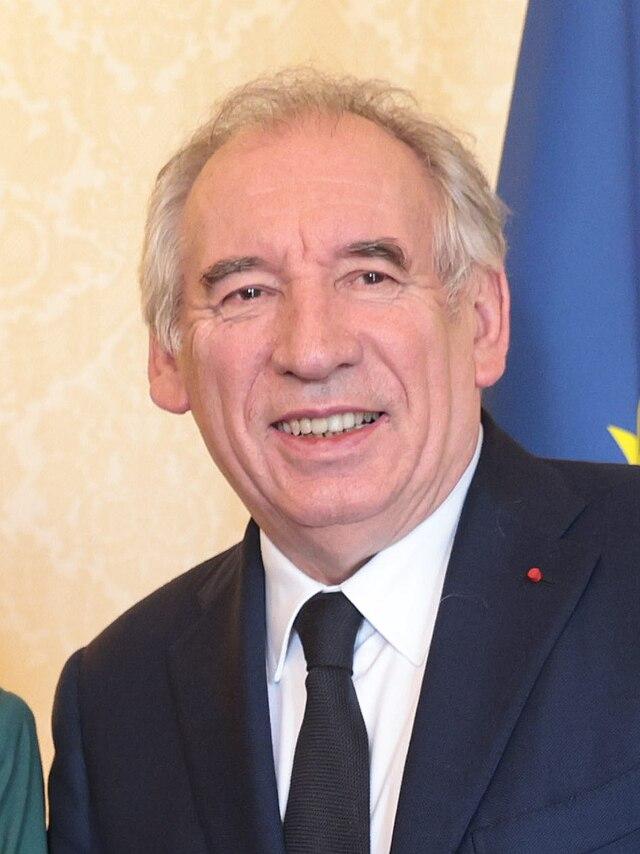France’s Macron Names Centrist Ally Bayrou as Country’s Next Prime Minister
In a significant political shift, French President Emmanuel Macron has appointed François Bayrou, a seasoned centrist figure and long-time ally, as the nation’s new Prime Minister. This strategic choice underscores Macron’s commitment to fostering political cohesion amid a backdrop of rising challenges, including economic uncertainties and growing social tensions. Bayrou, known for his moderate positions and collaborative approach, is expected to play a key role in advancing Macron’s reform agenda while navigating the complexities of a fragmented parliament. As the new administration takes shape, all eyes will be on Bayrou to see how he addresses the pressing issues facing France and unites a divided electorate.
Macron’s Strategic Shift: A Closer Look at Bayrou’s Appointment
The recent appointment of Francois Bayrou as France’s next prime minister marks a significant pivot in President Macron’s leadership strategy, aiming to stabilize the political landscape amid rising populism and division within the European Union. Bayrou, a centrist figure with a history of political alliances, brings a wealth of experience that may help to unite disparate factions within the government and broader society. In an era where partisan tensions run high, this move is seen as an effort to foster collaboration and consensus across the political spectrum, potentially creating a new paradigm for governance in France.
Analysts are already speculating on the implications of Bayrou’s leadership style, particularly in terms of domestic policy initiatives. His focus will likely include:
- Social Cohesion: Promoting unity through inclusive policies.
- Economic Stability: Addressing inflation and unemployment while maintaining budgetary discipline.
- Environmental Policies: Pushing forward with Macron’s green agenda to combat climate change.
To gauge public sentiment, recent polls indicate a cautiously optimistic outlook among French citizens regarding this appointment. However, Bayrou will need to negotiate carefully with both traditional parties and emerging movements to ensure effective governance.
Analyzing Bayrou’s Political Profile and Experience in Governance
François Bayrou has long been a pivotal figure in French politics, representing a centrist vision that seeks to bridge the gaps between the traditional left and right parties. His experience spans several significant roles, including serving as Minister of Education and Mayor of Pau. As the founder of the MoDem party, Bayrou has been an advocate for democratic renewal and has often emphasized the need for dialogue and collaboration in governance. His political journey is underscored by a commitment to pragmatic solutions that address contemporary challenges facing France.
Bayrou’s governance philosophy emphasizes transparency and inclusivity. In his previous roles, he has championed initiatives that promote civic engagement and bolster local economies. Some of his notable proposals include:
- Decentralization of Powers: Advocates for transferring more authority to local governments to enhance responsiveness and accountability.
- Sustainable Development: Supports environmental policies aimed at sustainable growth and urban renewal.
- Education Reform: Focuses on improving the education system to better prepare future generations for an evolving job market.
His collaborative approach has been instrumental in forming alliances across party lines, further showcasing his adeptness at fostering unity amidst a fragmented political landscape. As Bayrou prepares to take on the role of Prime Minister, his extensive political experience and centrist ideology may provide the necessary balance to address the urgent issues currently facing the French government.
The Impact of a Centrist Prime Minister on France’s Legislative Agenda
The appointment of François Bayrou as prime minister marks a significant shift in France’s political landscape, emphasizing a centrist approach to governance. This change is poised to reshape the legislative agenda by fostering collaboration between parties, enabling initiatives that might have previously been stalled due to partisan gridlock. Key areas likely to see immediate focus include:
- Economic Reform: A push for fiscal responsibility while maintaining social welfare programs.
- Climate Policy: Strengthening environmental regulations and promoting sustainable practices.
- Education: Advocating for reforms aimed at improving the quality and accessibility of education.
Bayrou’s centrist orientation may facilitate cross-party coalitions in the Assembly, potentially leading to more pragmatic laws. This could result in a legislative environment that prioritizes consensus-building over ideological battles. Challenges remain, however, as internal divisions within parties and public sentiment could influence Bayrou’s ability to maintain unity. The anticipated legislative strategies include:
| Legislative Focus | Expected Outcomes |
|---|---|
| Social Policies | Greater inclusivity and support for vulnerable populations. |
| Digital Innovation | Investment in technology and infrastructure to enhance competitiveness. |
| Foreign Affairs | A balanced foreign policy that strengthens international ties. |
Recommendations for Macron’s Government: Building Consensus Across the Political Spectrum
To foster a more unified political landscape in France, Macron’s government must prioritize open dialogue and collaboration among diverse political factions. Key initiatives could include:
- Regular bipartisan forums: Establishing platforms where politicians from across the spectrum can discuss pressing issues and co-create policy solutions.
- Inclusive policymaking: Encouraging the participation of smaller parties in legislative processes to ensure a wide range of perspectives are considered.
- Public engagement campaigns: Launching initiatives aimed at increasing citizen involvement in politics, creating a sense of shared ownership of governance.
Additionally, a structured approach to addressing national challenges could build trust and consensus. For instance, the government might implement a framework for assessing key social issues, as shown in the following table:
| Issue | Action Required | Potential Collaborators |
|---|---|---|
| Climate Change | Develop a national climate policy | Environmental groups, regional leaders |
| Economy | Support small businesses | Chambers of commerce, labor unions |
| Health Care | Enhance public health services | Health organizations, local governments |
These strategies can create an environment where consensus is not just an ideal but an achievable reality, ensuring that Macron’s government addresses the complexities of modern governance while remaining responsive to all French citizens.
Final Thoughts
In conclusion, President Emmanuel Macron’s decision to appoint centrist ally François Bayrou as France’s next prime minister signals a strategic move to strengthen his government amid ongoing political challenges. Bayrou, a seasoned politician and founder of the MoDem party, brings extensive experience that could prove pivotal in navigating the complexities of both domestic and European issues. As he steps into this crucial role, all eyes will be on how his leadership influences macroeconomic policies and responds to the diverse needs of the French populace. With parliamentary elections on the horizon, the stability of Macron’s administration and its centrist agenda will be tested in the coming months. The implications of this appointment extend beyond France, potentially impacting the broader political landscape in Europe as the continent grapples with various crises.




